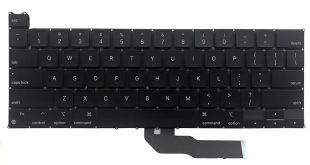Owning an RV opens up a world of adventure and freedom. Whether you’re embarking on weekend getaways or cross-country journeys, your RV serves as both your transportation and your home. But like any vehicle, RVs require regular upkeep to remain in optimal condition. Maintaining your RV is not just about preventing breakdowns; it’s about extending its lifespan and ensuring that it continues to provide reliable service year after year.
Regular maintenance is essential to keeping your RV running smoothly and protecting your investment. In this article, we’ll explore why routine care is key to extending your RV’s lifespan, what tasks should be prioritized, and how a proactive maintenance approach can save you money and time in the long run.
1. Prevent Costly Repairs
One of the primary reasons regular maintenance is so important is that it helps prevent small problems from turning into large, costly repairs. An RV is a complex machine made up of many components, from the engine and tires to the electrical and plumbing systems. Over time, these components experience wear and tear, which, if left unchecked, can lead to serious malfunctions.
For instance, failing to change the oil regularly can result in engine damage, which may require a complete engine overhaul or replacement. Likewise, neglecting tire maintenance can lead to blowouts, which not only compromise your safety but can also cause damage to other parts of your RV. By addressing minor issues early on, you can avoid the expense and inconvenience of major repairs.
2. Maintain Optimal Performance
Regular maintenance ensures that your RV operates at peak performance, giving you the best possible experience on the road. Properly maintained systems—whether it’s the engine, brakes, electrical components, or air conditioning—function more efficiently and reliably. This translates into a smoother driving experience, better fuel efficiency, and greater comfort for you and your passengers.
- Engine Performance: Regular oil changes, air filter replacements, and checking fluid levels are critical for keeping your engine running efficiently. An engine that’s well-maintained will last longer and perform better, allowing you to enjoy your road trips without worrying about mechanical failures.
- Brakes: Your brakes are essential for safe driving, especially when you’re navigating steep mountain roads or towing additional weight. Routine brake inspections help ensure that your RV can stop safely and that you’re not at risk of brake failure while traveling.
- Tires: Checking tire pressure, alignment, and tread depth is key to avoiding tire blowouts and improving fuel efficiency. Properly inflated and aligned tires also enhance your RV’s handling and reduce wear on the suspension.
3. Extend the Life of Major Systems
Your RV is equipped with several major systems, such as heating and cooling, plumbing, and electrical systems, all of which require regular attention. These systems are essential for your comfort and convenience while traveling, and neglecting them can lead to expensive repairs or replacements.
- Heating and Cooling Systems: RVs often come with heating and cooling systems that make traveling in extreme weather conditions comfortable. These systems need regular servicing to ensure they work properly. Dirty filters, clogged ducts, and low refrigerant levels can reduce the efficiency of your air conditioning unit or heating system. By cleaning and maintaining these systems, you ensure they last longer and perform better.
- Plumbing System: A well-functioning plumbing system is crucial for long trips, especially if you plan to spend extended time off-grid. Regularly check the water pump, faucets, and tanks for leaks or malfunctions. Flushing the water heater and sanitizing the water system are also important steps in maintaining your RV’s plumbing system.
- Electrical System: From powering your appliances to charging your electronics, the electrical system in your RV is a critical component. Routine checks on the batteries, fuses, and circuit breakers help prevent electrical failures, which could leave you without power while on the road.
4. Protect Your Investment
An RV is a significant investment, and regular maintenance helps protect its value. If you plan to sell or trade in your RV down the line, having a well-maintained vehicle can significantly boost its resale value. Potential buyers are more likely to purchase an RV that has a history of regular maintenance, as it suggests that the vehicle has been cared for and is less likely to have hidden issues.
Documenting your maintenance efforts, such as keeping records of oil changes, brake inspections, tire rotations, and other service appointments, adds credibility when you’re ready to sell. A detailed maintenance history reassures buyers that your RV is in good condition and has been properly maintained.
5. Enhance Safety
Safety is paramount when you’re on the road, and a well-maintained RV is a safer vehicle. Regular maintenance ensures that all safety systems, such as brakes, lights, tires, and seat belts, are functioning correctly. Mechanical failures or breakdowns on the highway can be dangerous, particularly if you’re driving in remote areas or through difficult terrain.
- Tire Safety: Under-inflated or worn-out tires are a leading cause of accidents involving RVs. By regularly checking your tires for proper pressure and tread depth, you can avoid blowouts and other dangerous tire-related incidents.
- Brake Safety: Faulty brakes can put you at risk, especially when driving downhill or in heavy traffic. Routine brake inspections ensure that your RV can stop quickly and safely when necessary.
- Fire Safety: Maintenance also includes inspecting fire safety equipment such as smoke detectors, carbon monoxide detectors, and fire extinguishers. Keeping these devices in working order could save lives in the event of an emergency.
6. Save Money in the Long Run
While it may seem counterintuitive, spending money on regular maintenance actually saves you money in the long run. Preventive maintenance costs are far lower than the expenses associated with major repairs or replacements. For example, the cost of regularly changing your oil is minimal compared to the expense of repairing or replacing a damaged engine.
Regular maintenance also improves fuel efficiency, saving you money on gas during your travels. Properly inflated tires, a clean air filter, and well-maintained mechanical systems reduce the strain on your engine and allow your RV to run more efficiently.
7. Increase Longevity of the RV’s Exterior and Interior
Maintenance isn’t limited to the mechanical and electrical components of your RV; it also extends to the exterior and interior of the vehicle. Taking care of the body, paint, seals, and interior furnishings helps your RV age gracefully and remain in good condition for years to come.
- Exterior Maintenance: Regularly washing and waxing your RV protects the paint and exterior from dirt, debris, and harmful UV rays that can cause fading and oxidation. Inspecting and sealing the roof, windows, and doors prevents leaks that could lead to water damage.
- Interior Care: Keeping the interior clean and well-maintained helps preserve the upholstery, cabinets, and appliances. Vacuuming carpets, wiping down surfaces, and checking for leaks or moisture buildup in the walls or ceiling all contribute to a longer-lasting RV interior.
8. Reduce Downtime
No one wants their vacation plans disrupted by unexpected mechanical failures or breakdowns. Regular maintenance helps reduce the risk of breakdowns, allowing you to spend more time enjoying the road and less time dealing with repairs. By addressing potential issues before they become problems, you can avoid costly delays and downtime while traveling.
For full-time RVers or those who spend extended periods on the road, minimizing downtime is especially important. Routine maintenance ensures that your RV is ready to go whenever you are, without the worry of sudden mechanical issues cutting your trips short.
Final Thoughts
Owning an RV is a rewarding experience, but it comes with responsibilities. Regular maintenance is crucial to extending the lifespan of your RV, keeping it in top shape, and ensuring your safety and comfort on the road. By taking a proactive approach to maintenance, you not only protect your investment but also enhance the overall performance and longevity of your vehicle.
From engine care to tire inspections, electrical checks to exterior upkeep, regular maintenance is the key to getting the most out of your RV for years to come. Taking the time to care for your RV will allow you to enjoy countless road trips and adventures without the stress of unexpected breakdowns or costly repairs.
 Daily Blogger News Stay updated with the latest trends and insights. Your reliable source for daily updates and information.
Daily Blogger News Stay updated with the latest trends and insights. Your reliable source for daily updates and information.







